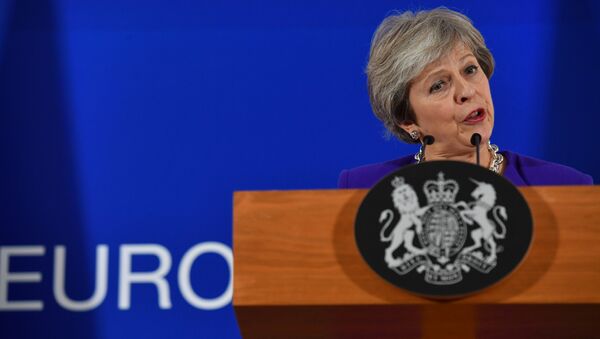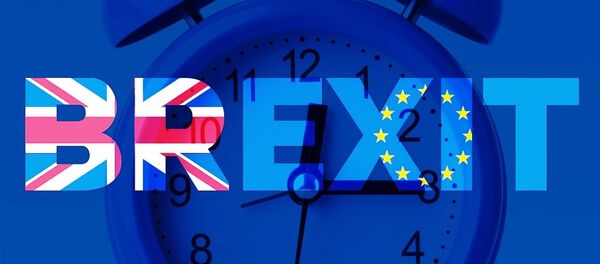The Prime Minister said that the negotiations between the UK and the European Union still face “significant” issues despite the talks that went until the early hours of Monday morning, as both sides are still struggling to bridge the gap over the Northern Irish border, The Guardian reported.
READ MORE: Commentator on Theresa May's Brexit Plan: 'Everybody Seems to not Like her Deal'
The members of the British government were told that the issue would hardly be discussed at the meeting beyond an update of the UK’s preparedness for no deal. The meeting had lasted until 2:45 a.m. without any significant breakthroughs as the EU made a series of last-minute demands regarding the customs backstop, which were designed to come into force if no long-term free trade deal is signed.
Addressing the Lord Mayor’s Banquet at the Guildhall in London on Monday night, May said “The negotiations for our departure are now in the endgame.” The failure to agree with the EU means that there is an increasingly difficult time period before British Parliament could make a “meaningful final vote” on May’s deal before the EU summit scheduled for December 13-14.
“We are working extremely hard, through the night, to make progress on the remaining issues in the withdrawal agreement, which are significant. […] Both sides want to reach an agreement, but what we are negotiating is immensely difficult,” the prime minister said, adding that “This will not be an agreement at any cost.”
In Brussels, where the negotiations took place, Barnier told European affairs ministers that the negotiators had yet failed to get any progress. “Michel Barnier explained that intense negotiating efforts continue, but an agreement has not been reached yet,” the European Council, which represents the member states, said in a statement, cited by RTE.
The Irish Deputy Prime Minister and Minister for Foreign Affairs Simon Coveney told reporters that it was clear from the meeting that “the support and the solidarity for Michel Barnier and his negotiating team is stronger now than it has ever been.”
“Clearly this is a very important week for Brexit negotiations. The two negotiating teams have really intensified their engagement and the support and solidarity for that work is very, very strong,” he added, as cited by The Guardian.
The withdrawal agreement, the draft exit treaty, is already slated to be comprised of more than 400 pages of dense legal text. It is expected to be published when a deal is agreed upon between the UK and the EU, accompanied by a political declaration about the future trade relationship. The EU capitals reportedly would like to have some time to examine any agreement made between the European Commission and the UK before it is published. France and Germany are understood to have made the point forcefully to Barnier.



